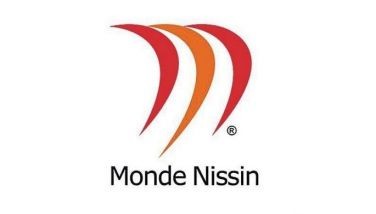Private sector urged to provide security for open Internet exchange
MANILA, Philippines - The Department of Science and Technology (DOST) is appealing to the private sector to help provide sufficient security for an Internet exchange hosted by the government to cater to local Internet service provider (ISPs) aimed at improving Internet speeds in the country.
Luis Napoleon Casambre, executive director of DOST’s Information and Communications Technology office, said the issue of whether the government has capabilities to provide sufficient security for Philippine Open Internet Exchange (PHOpenIX) is a valid concern.
“Indeed, security is a legitimate concern. The government has a lot of work to do but you have to consider that the government cannot give everything to the private sector. We are addressing such concerns and we already have the best of what the government already has. We’re conscious that that is not enough and that’s why the direction is to engage the private sector to help us with the security. We’re investing in industry-grade solutions,” Casambre said.
As proposed, Internet protocol (IP) peering among local ISPs should be hosted by PHOpenIX, an Internet exchange managed by DOST’s Advanced Science and Technology Institute (DOST-ASTI).
The agency believes that the absence of an effective and reliable domestic IP peering among local telecommunication providers weighs down on local internet speeds as it discourages localization of foreign content including those coming from popular social media sites such as Facebook.
“One of the inherent problems relating to the Internet is that all the foreign traffic that has to run through undersea cables. The way to improve Internet speed in the country to get foreign content localized,” he added.
He cited that about 25 million Filipinos currently have Facebook accounts but the social media company would not likely establish local data centers without an applicable IP peering arrangement between dominant carrier Philippine Long Distance Telephone Co. (PLDT) and Ayala-led Globe Telecom Inc.
PLDT and Globe have been at loggerheads over a proposed IP peering policy to allow the exchange of internet traffic among ISPs made by the National Telecommunications Commission (NTC).
PLDT is amenable to the direct interconnection among local ISPs but only through bilateral commercial agreements as it continues to have reservations regarding the security and adequacy of the technical arrangements of proposed mandatory peering through the facilities of the PHOpenIX.
Likewise, it added that domestic peering is not the solution to complaints of slow internet speeds as up to 90 percent of Internet traffic in the Philippines is content sourced from overseas particularly the US.
Globe has dared PLDT to connect to PHOpenIX to allow the exchanges of Internet traffic among domestic ISPs for faster data interchange as around 15 percent to 30 percent of all internet traffic originates and terminates in the Philippines.
Despite the challenges, Casambre said the government’s vision is geared towards establishing an effective and domestic IP peering for all local ISPs over the medium to long-term period.
“From the government’s point of view, it does not make sense that consumers pay for international transit talking to someone who could be his neighbor. It does not make sense to charge consumers just because the Telcos couldn’t agree with one another. IP peering can solve that,” he added.
He pointed out that f Administrative Order No. 39 issued in July last year mandates that all government agencies, government financial institutions, and government-owned and controlled corporations to have their websites hosted under the new Government Web Hosting Service (GWHS).
- Latest
- Trending


























